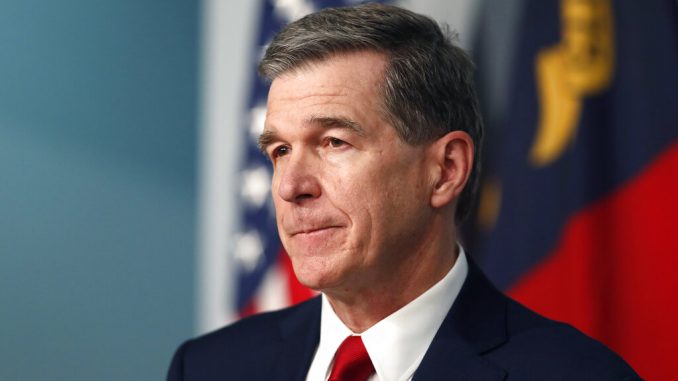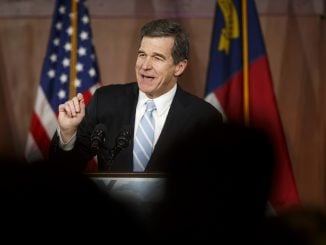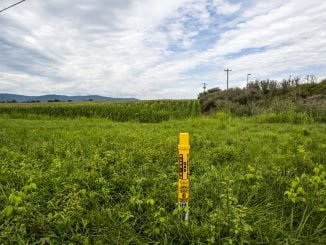
RALEIGH — When K-12 public school students in North Carolina resume classes this fall, the vast majority of them will be sitting at home in front of a computer screen.
Despite a desire by most Americans to reopen schools at least partially for in-person learning, nearly two in three North Carolina parents were not given the choice to send their kids back for the start of the fall.
Data released by the state shows at least 65% of public school students will start this academic year fully remote because their districts went with the Plan C option that Democratic Gov. Roy Cooper offered in his reopening guidance. Beyond that, an unknown number of parents have opted for remote instruction in districts that allowed for a mix of in-person and online learning.
“We know how important in-person school is,” Cooper said in a Thursday interview with the AP. “Kids just cannot learn as well with remote learning and they don’t get the socialization, the health care and nutrition that they need by being in school. That’s why I want them in school if we can get them there. However, we need to put the health and safety of the children first. ”
Cooper noted many districts that have taken the remote option are doing so temporarily and will evaluate in-person options if coronavirus spread decreases.
A Washington Post-Schar poll of U.S. parents with kids entering kindergarten through 12th grade this fall released on Thursday showed that three in five parents want schools to at least partially reopen, with 44% pushing for a mix of online and in-person classes and 16% favoring all in-person classes. Thirty-nine percent of parents preferred fully remote instruction. The poll of parents conducted last month reported a margin of error of 3 percentage points.
“The vast majority of parents want their children safe,” Cooper said when asked about the poll. “When a school district has decided that remote learning for the first few weeks is the best way to keep those children safe, then I support that decision.”
Republican Lt. Gov. Dan Forest, who’s running to unseat Cooper in the fall election, has criticized the governor’s reopening plans and is arguing in court that some of Cooper’s executive orders are unconstitutional because Cooper didn’t receive approval from the Council of State. Cooper, meanwhile, insists he has emergency authority in the middle of a pandemic to impose gathering limits and keep certain businesses closed.
Forest spokesman Andrew Dunn said the lieutenant governor supports immediately getting kids back to classrooms. “All the available science indicates that schools are safe to reopen,” Dunn said. “North Carolina’s current school guidance simply doesn’t work, for students or for working families. All families should have the option to send their children back to school full-time, just like they have the option for remote learning.”
Vice President Mike Pence met last month with students, teachers and staff at an Apex private school that has resumed in-person learning as part of a push to reopen schools.
Denise Kent, senior administrator at Franklin Academy Public Charter School, told Pence during a roundtable discussion that she would have preferred full in-person learning or full remote learning, but not the hybrid model. She told Pence her school operates on a 3-day swing shift schedule but could safely reopen full time if her teachers had needed cleaning supplies.
“We are having a lot of difficulty getting the cleaning supplies to clean at regular intervals,” Kent said.
In his interview with the AP, Cooper said that state emergency management officials are distributing cleaning supplies and other safety materials to schools.
“We want to make sure that our schools have what they need,” he said.
Cooper’s office said it doesn’t believe there have been broad requests from the state for cleaning supplies and directed further questions to the state health department.



